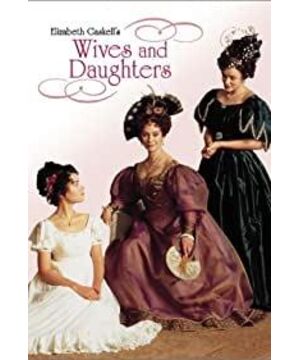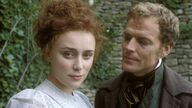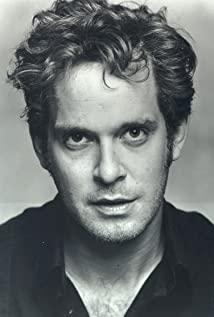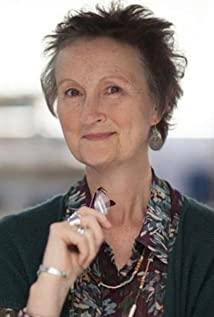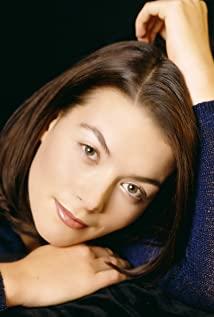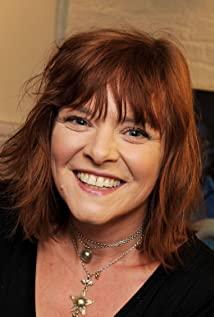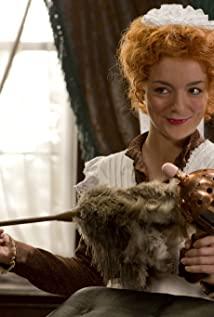The girl Jasmine grew up in a single-parent family in a small town, her father is a doctor. In nineteenth-century England, this was a very high class. At the beginning of the story, Jasmine is simple and pure, like her everyday pure white clothes.
The Hamley family is a noble with a long history, and its family history is said to date back to the Seven Kingdoms era. Jasmine, a young girl, came to visit the Hamleys' house and saw the two boys of the Hamleys for the first time in an oil painting. The eldest son was the handsome Osborn, and the second son was the plain Roger. Mrs. Ha is an old woman who loves to read poetry. Her London atmosphere and perennial illness combine into a kind of elegant motherhood. The motherless child Jasmine and the daughterless Mrs. Ha have become a good companion for the year, reading poetry and arranging flowers. Coupled with that old aristocrat Ha, who was screaming, Little Jasmine's life as a guest was quite peaceful. The poet Osborn and Roger, who was pondering insects, returned to Hazhai one after another. Jasmine put on the clothes she bought with her first pocket money in her life. The era of pure white came to an end, and the girl had a different feeling.
Most single-parent girls love their fathers, not to mention Jasmine's father, Dr. Gibson, a dignified and gentle good person, who loves his daughter to the point of being speechless. In the original work, the father suddenly got married in order to find a mother for Jasmine, but the filming of the TV series is somewhat like "the old house is on fire". In short, a stepmother who used to be a governess for the new nobles came to the Jasmine family. Since then, there have been more rules in life, and the unfettered freedom of father and daughter has been lost. The stepmother's daughter Cynthia came back from studying in France, as if she had opened a skylight for little Jasmine, and fresh and turbulent air was blowing from the window. Cynthia is a person, with smart eyes and a proud figure - according to my thin oriental aesthetic, Jasmine is a pure beauty, but the British obviously don't think so, as long as it is a young married man in the film, he will not lose his eyes when he sees Cynthia. Straight, even Roger, who usually only stares at insects, is no exception.
The original author, Mrs. Gaskell, lived in the 19th century, and she is familiar with the small town life in her writings. All kinds of people of all classes and colors are walking their own paths according to their characters and destiny. The TV series dilutes the "class color" and emphasizes the beauty of Jasmine's character, so we see that this pure white person is like an old-fashioned woman with three obedience and four virtues. All kinds of interference swallowed up. If it wasn't for Cynthia and her, it would be hard to watch. Cynthia always said to Jasmine: I don't love people very much, and I don't love others more than you. This is the truth, but her sisterhood doesn't show how deep it is. This is a woman who needs others to pay for her. Since she appeared on the stage, men have offered their sincerity one after another, and little Jasmine has also carried the burden of not belonging to Cynthia. her stigma. In a country town of the nineteenth century, the most important thing for a girl's family was reputation. In order to clarify the name of Jasmine, Cynthia's biological mother's old boss, the lady of a new noble family, hugged Jasmine for a circle around the street, so all the snobs were silent. The lady has an arrogant masculinity and is very suspicious, which is not shown here. In the end, it was she who tried to reunite Jasmine and Roger again. However, people's calculations are always better than heaven's...
The scene where Roger proposed to Jasmine was very lively, in order to prevent her from being infected with the virus (scarlet fever? Really? I didn't pay attention to that word), the two stood in the rain more than two meters apart, drenched in the rain, and looked at each other. This scene is very bloody, and it does not match the implicit old-time style of the whole film, but after all, after watching four episodes, I will still be moved by the director's deliberate intention. Jasmine's answer in the rain was: Yes. Yes, I will. Yes—it's almost like the yes I said yes I will Yes that Joyce used in Ulysses. At this moment, the little girl's forbearance finally came to a happy ending, and Cynthia also married a lawyer who loved her and admired her. The film reveals the two inevitable endings of the world's story: marriage and death. The dead are gone, and the living are all married.
Just a digression about the actors: it's hard to understand the aesthetic of the British, and Osborne in the film is obviously not as handsome as Roger. Playing Osborne is indeed a role, Tom Hollander, who played Guy in "Cambridge Spies", his eyes have a kind of sloppy air, which is very suitable for the poet Osborne, or the most flamboyant of the Cambridge Four. . And Cynthia looks sweeter if she doesn't deliberately throw layers of winks. It wasn't until I looked at the cast that I remembered that she was Keeley Hawes, the Kitty from Tipping the Velvet, the actress who changed Nancy's fate. Although she is not bad-looking, she is a popular face to me, and it is difficult to remember. Justine Waddell, who plays Jasmine, has played a bunch of nostalgic classic films. Her eyebrows are very renaissance. It seems that on this point, the British and I can be regarded as a consensus.
I still liked the scene of Jasmine and her father the most: the young Jasmine was carried by her father and walked out of the noble house, her small arms tightly clinging to her father's neck. The young girl Jasmine used an iron tong to bake bread in the fireplace and handed it to her father. The two of them broke the cheese with their hands to make the bread, and sat around the fireplace to talk at night. It's a pity that a daughter's happiness always has to be handed over from her father. Before that, I have to experience all kinds of bitterness in love. It really makes me think that I can't bear to have a daughter in the future.
View more about Wives and Daughters reviews


